 VLANs LAN Switching and Wireless – Chapter 3
VLANs LAN Switching and Wireless – Chapter 3
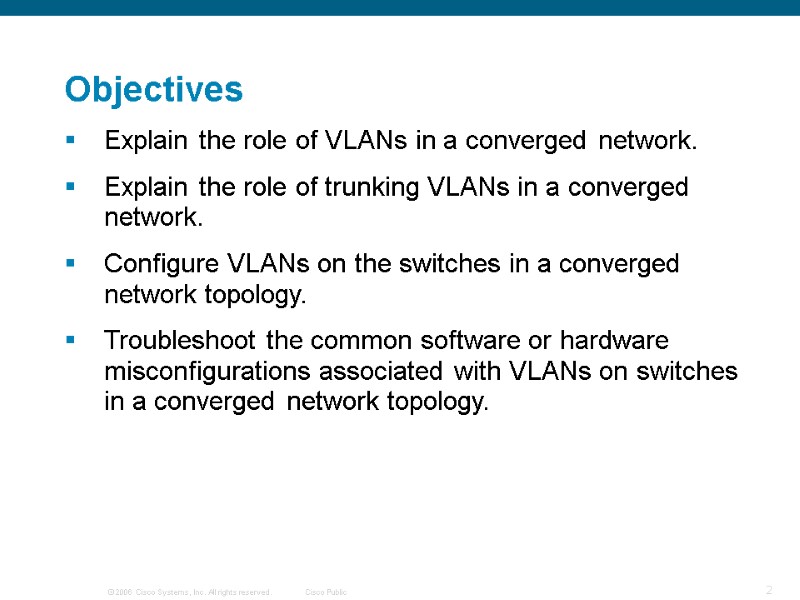 Objectives Explain the role of VLANs in a converged network. Explain the role of trunking VLANs in a converged network. Configure VLANs on the switches in a converged network topology. Troubleshoot the common software or hardware misconfigurations associated with VLANs on switches in a converged network topology.
Objectives Explain the role of VLANs in a converged network. Explain the role of trunking VLANs in a converged network. Configure VLANs on the switches in a converged network topology. Troubleshoot the common software or hardware misconfigurations associated with VLANs on switches in a converged network topology.
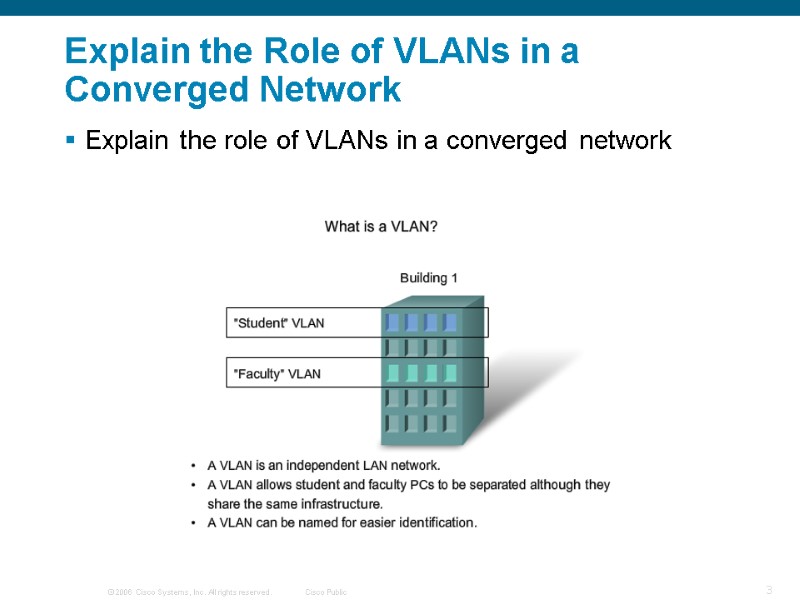 Explain the Role of VLANs in a Converged Network Explain the role of VLANs in a converged network
Explain the Role of VLANs in a Converged Network Explain the role of VLANs in a converged network
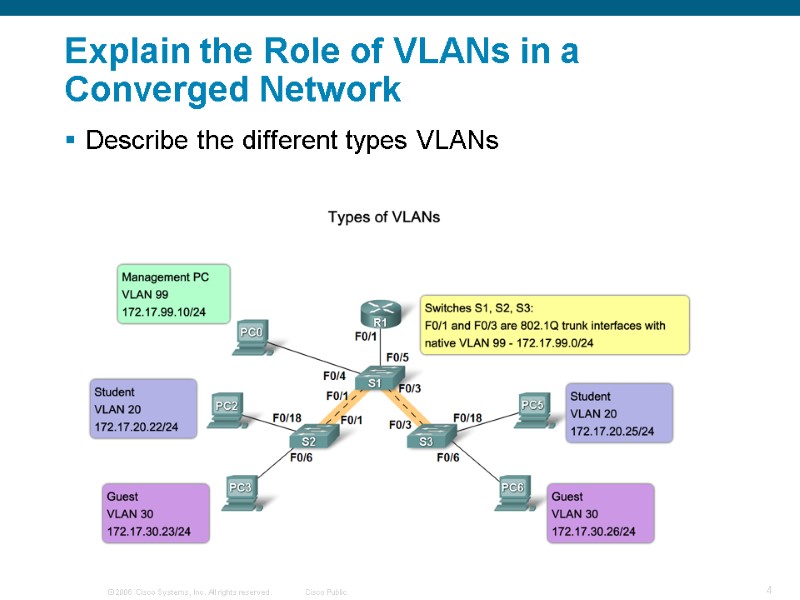 Explain the Role of VLANs in a Converged Network Describe the different types VLANs
Explain the Role of VLANs in a Converged Network Describe the different types VLANs
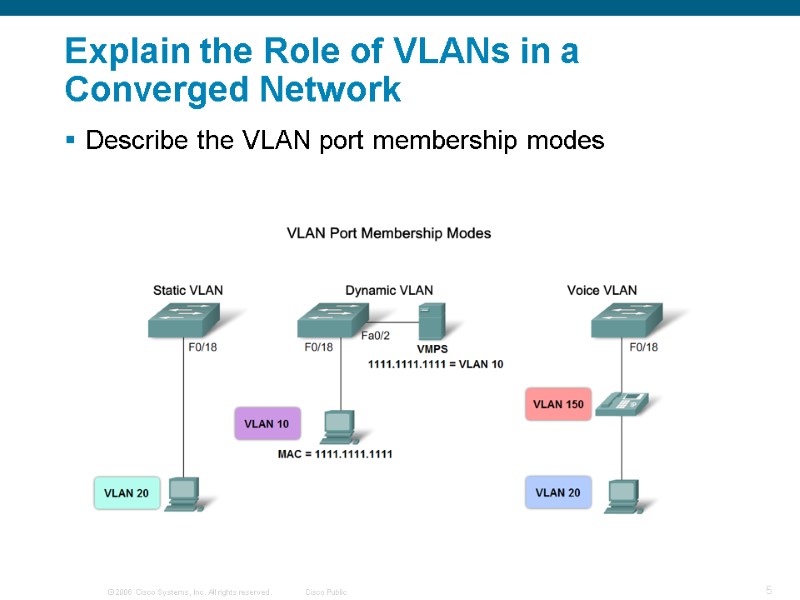 Explain the Role of VLANs in a Converged Network Describe the VLAN port membership modes
Explain the Role of VLANs in a Converged Network Describe the VLAN port membership modes
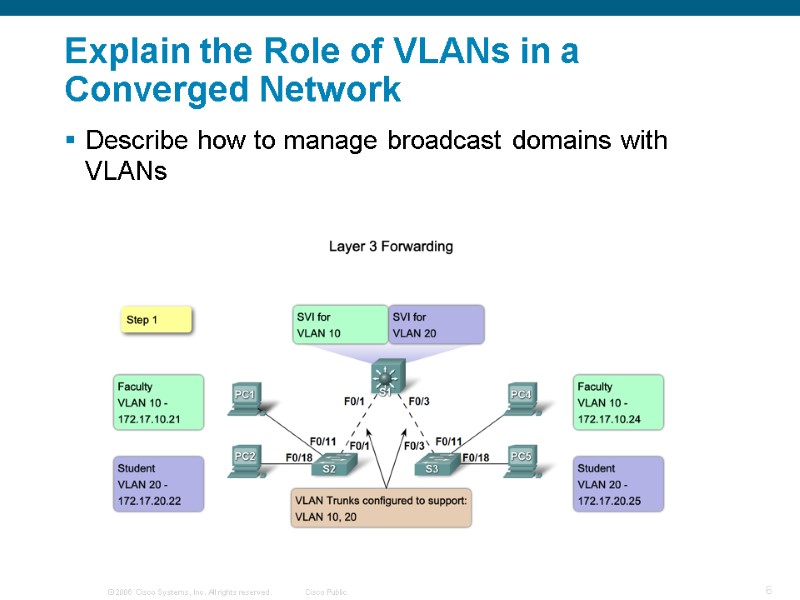 Explain the Role of VLANs in a Converged Network Describe how to manage broadcast domains with VLANs
Explain the Role of VLANs in a Converged Network Describe how to manage broadcast domains with VLANs
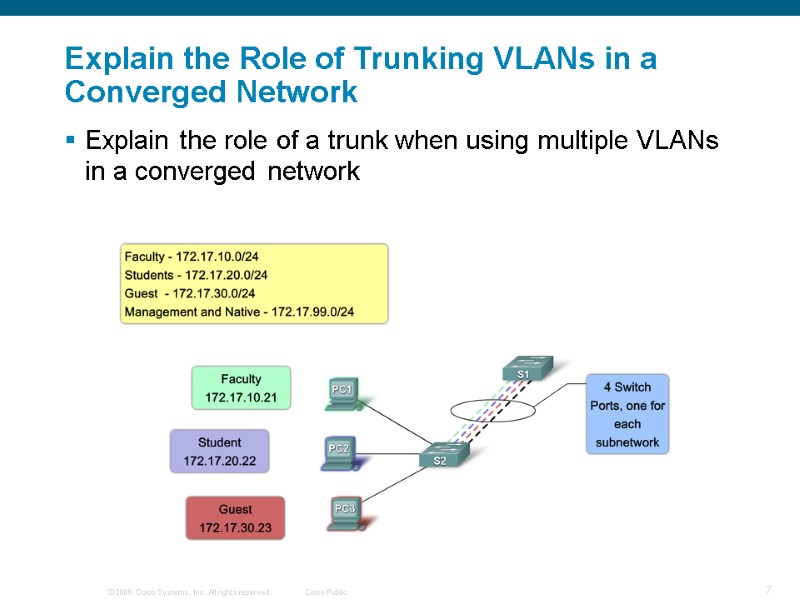 Explain the Role of Trunking VLANs in a Converged Network Explain the role of a trunk when using multiple VLANs in a converged network
Explain the Role of Trunking VLANs in a Converged Network Explain the role of a trunk when using multiple VLANs in a converged network
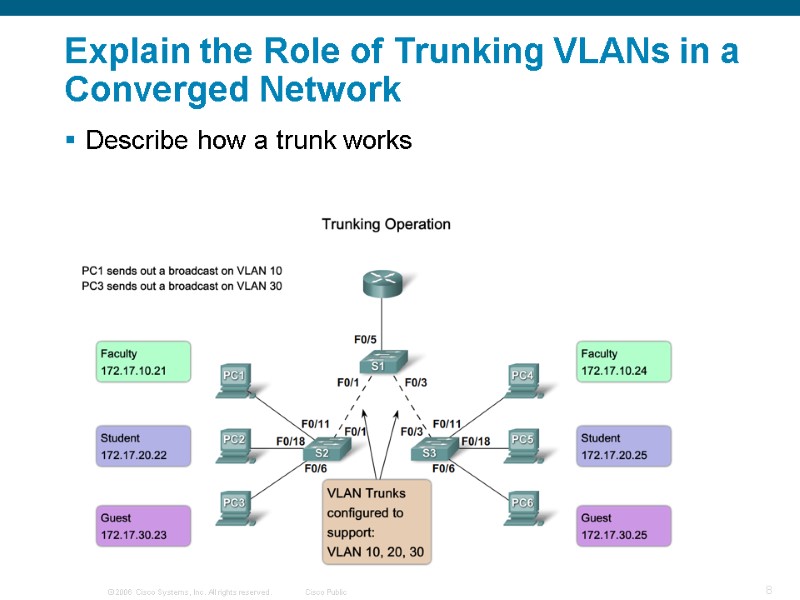 Explain the Role of Trunking VLANs in a Converged Network Describe how a trunk works
Explain the Role of Trunking VLANs in a Converged Network Describe how a trunk works
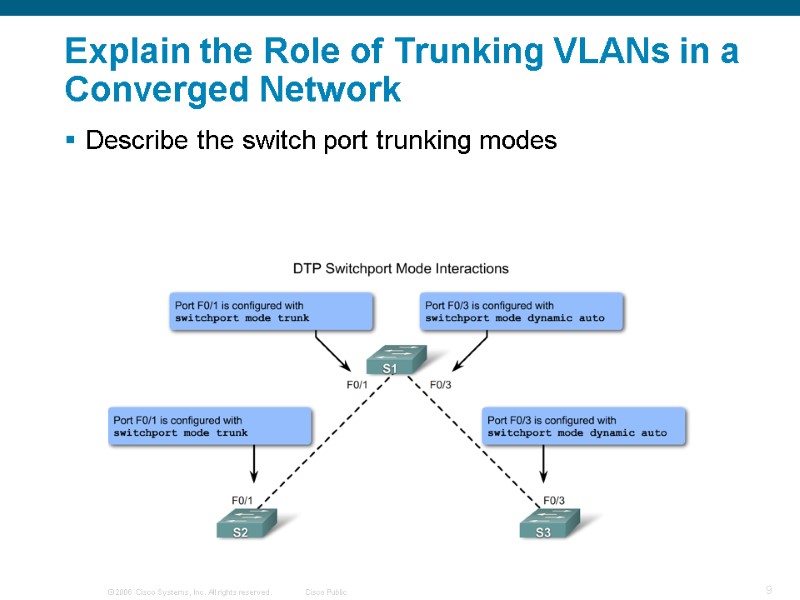 Explain the Role of Trunking VLANs in a Converged Network Describe the switch port trunking modes
Explain the Role of Trunking VLANs in a Converged Network Describe the switch port trunking modes
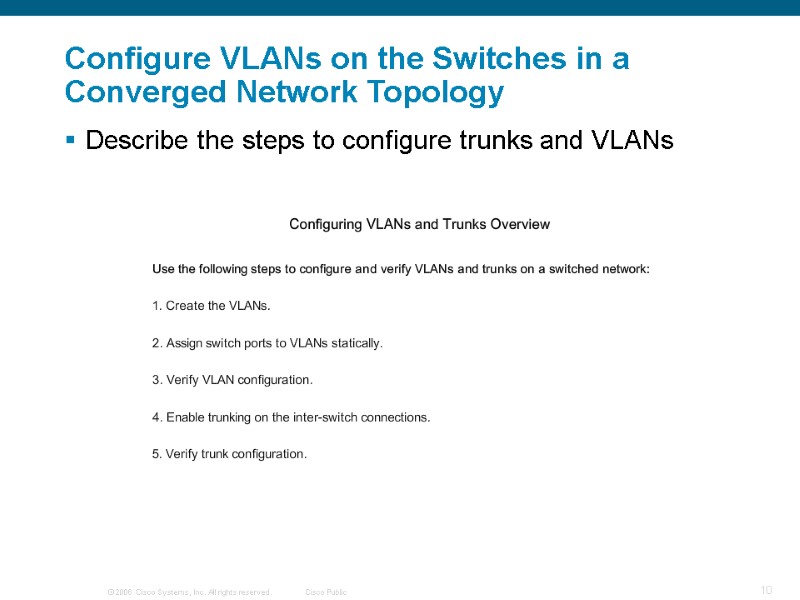 Configure VLANs on the Switches in a Converged Network Topology Describe the steps to configure trunks and VLANs
Configure VLANs on the Switches in a Converged Network Topology Describe the steps to configure trunks and VLANs
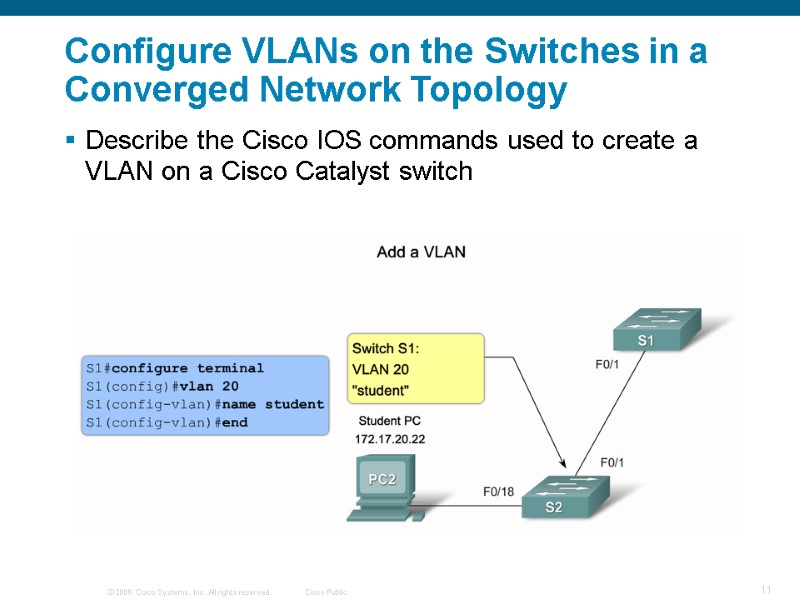 Configure VLANs on the Switches in a Converged Network Topology Describe the Cisco IOS commands used to create a VLAN on a Cisco Catalyst switch
Configure VLANs on the Switches in a Converged Network Topology Describe the Cisco IOS commands used to create a VLAN on a Cisco Catalyst switch
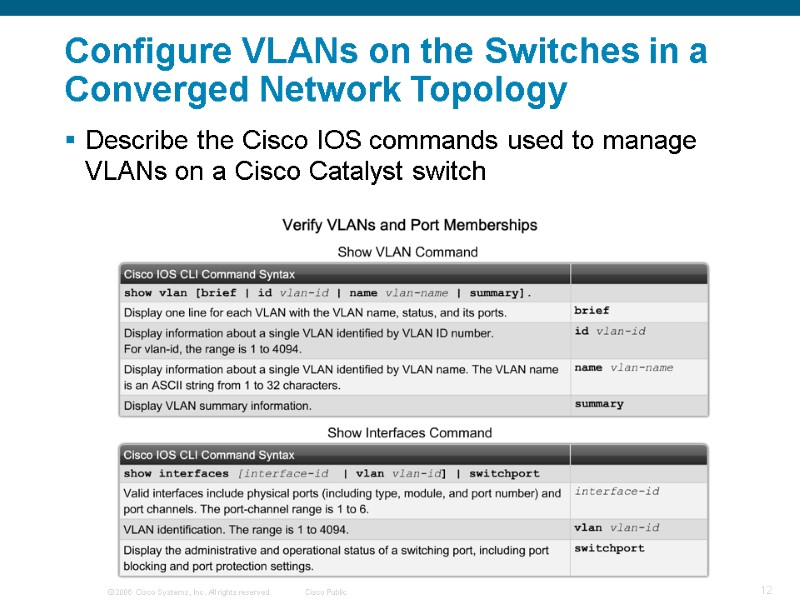 Configure VLANs on the Switches in a Converged Network Topology Describe the Cisco IOS commands used to manage VLANs on a Cisco Catalyst switch
Configure VLANs on the Switches in a Converged Network Topology Describe the Cisco IOS commands used to manage VLANs on a Cisco Catalyst switch
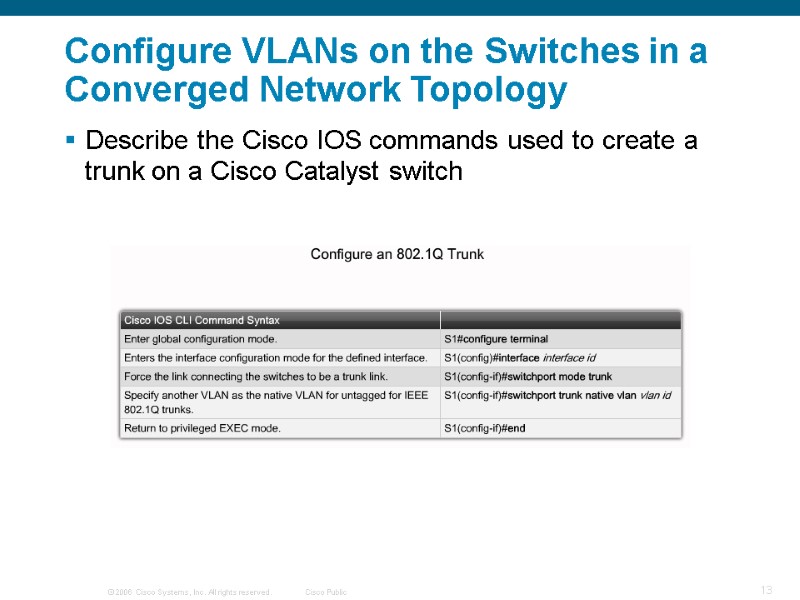 Configure VLANs on the Switches in a Converged Network Topology Describe the Cisco IOS commands used to create a trunk on a Cisco Catalyst switch
Configure VLANs on the Switches in a Converged Network Topology Describe the Cisco IOS commands used to create a trunk on a Cisco Catalyst switch
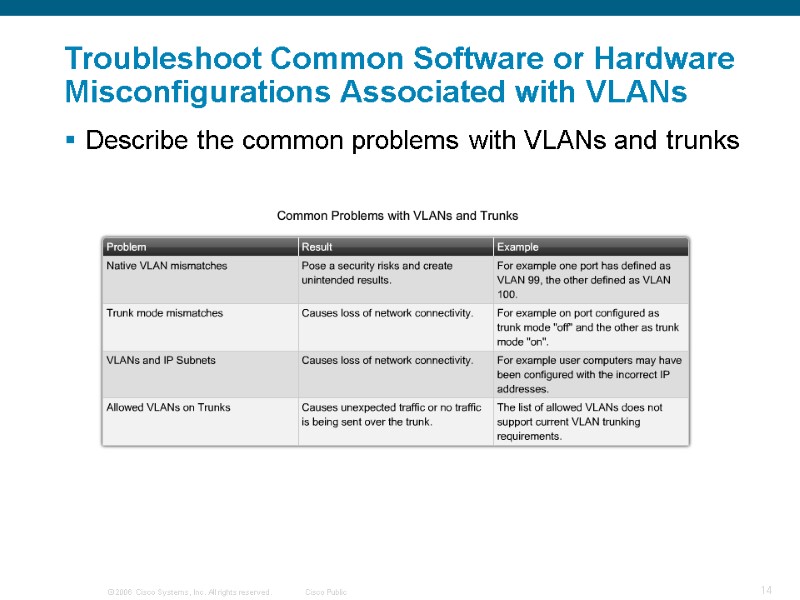 Troubleshoot Common Software or Hardware Misconfigurations Associated with VLANs Describe the common problems with VLANs and trunks
Troubleshoot Common Software or Hardware Misconfigurations Associated with VLANs Describe the common problems with VLANs and trunks
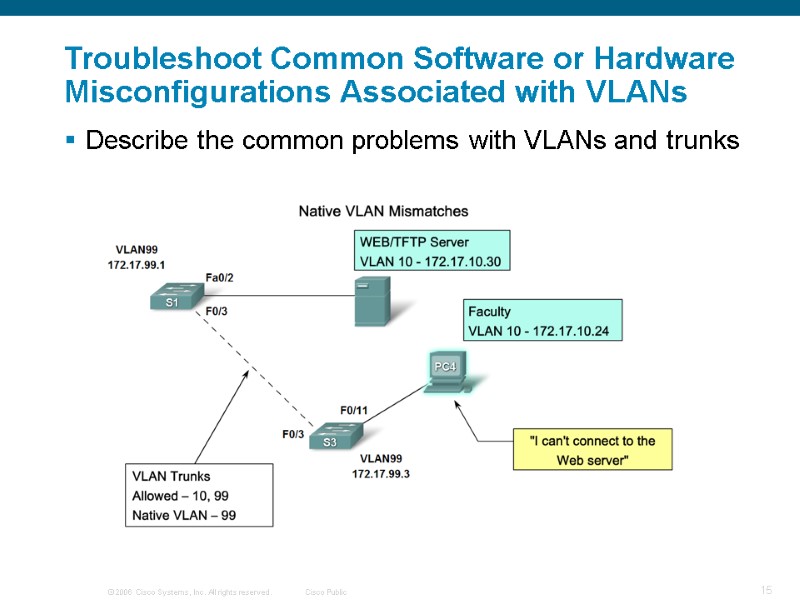 Describe the common problems with VLANs and trunks Troubleshoot Common Software or Hardware Misconfigurations Associated with VLANs
Describe the common problems with VLANs and trunks Troubleshoot Common Software or Hardware Misconfigurations Associated with VLANs
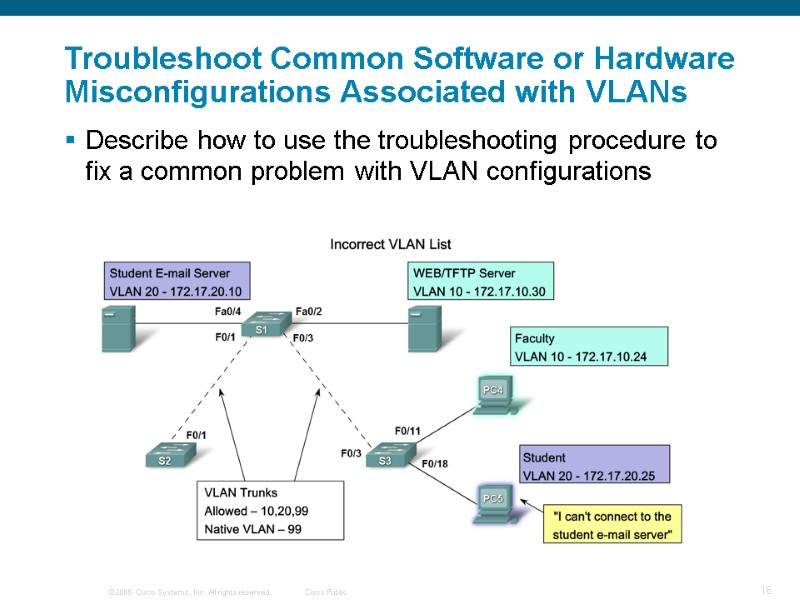 Describe how to use the troubleshooting procedure to fix a common problem with VLAN configurations Troubleshoot Common Software or Hardware Misconfigurations Associated with VLANs
Describe how to use the troubleshooting procedure to fix a common problem with VLAN configurations Troubleshoot Common Software or Hardware Misconfigurations Associated with VLANs
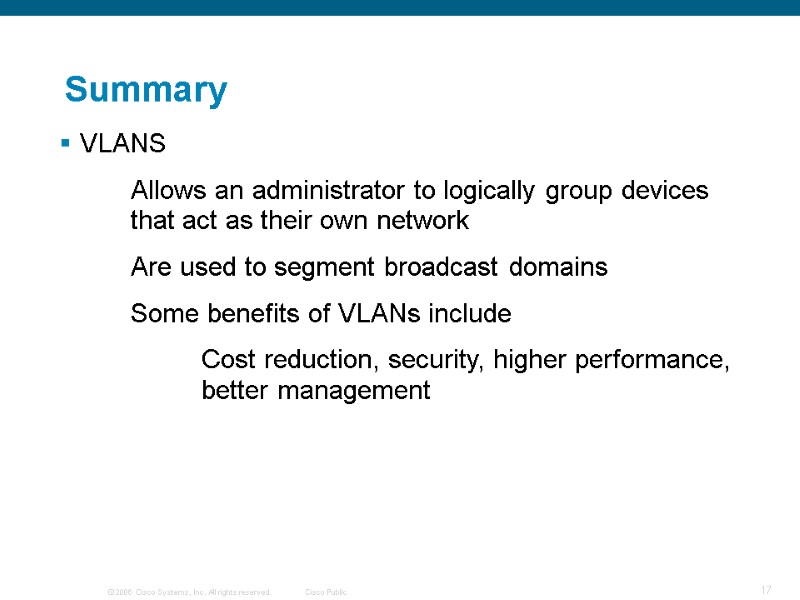 Summary VLANS Allows an administrator to logically group devices that act as their own network Are used to segment broadcast domains Some benefits of VLANs include Cost reduction, security, higher performance, better management
Summary VLANS Allows an administrator to logically group devices that act as their own network Are used to segment broadcast domains Some benefits of VLANs include Cost reduction, security, higher performance, better management
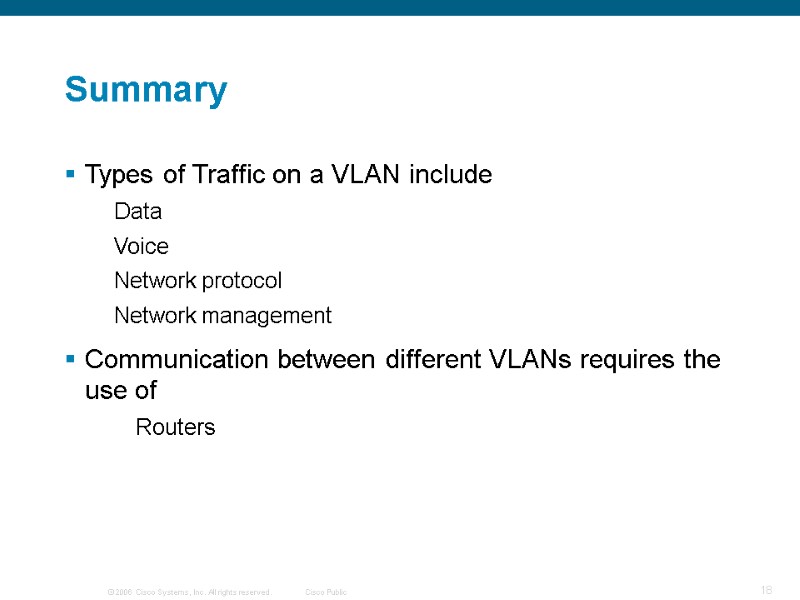 Summary Types of Traffic on a VLAN include Data Voice Network protocol Network management Communication between different VLANs requires the use of Routers
Summary Types of Traffic on a VLAN include Data Voice Network protocol Network management Communication between different VLANs requires the use of Routers
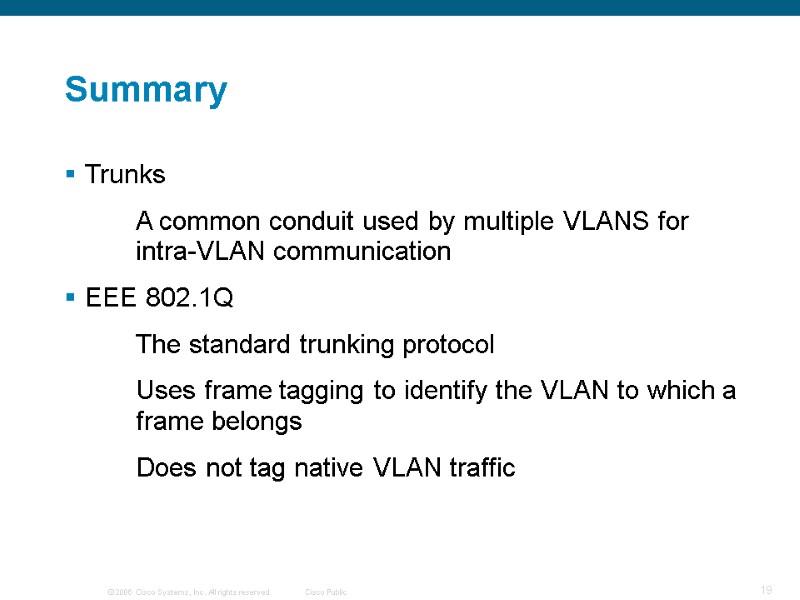 Summary Trunks A common conduit used by multiple VLANS for intra-VLAN communication EEE 802.1Q The standard trunking protocol Uses frame tagging to identify the VLAN to which a frame belongs Does not tag native VLAN traffic
Summary Trunks A common conduit used by multiple VLANS for intra-VLAN communication EEE 802.1Q The standard trunking protocol Uses frame tagging to identify the VLAN to which a frame belongs Does not tag native VLAN traffic









































